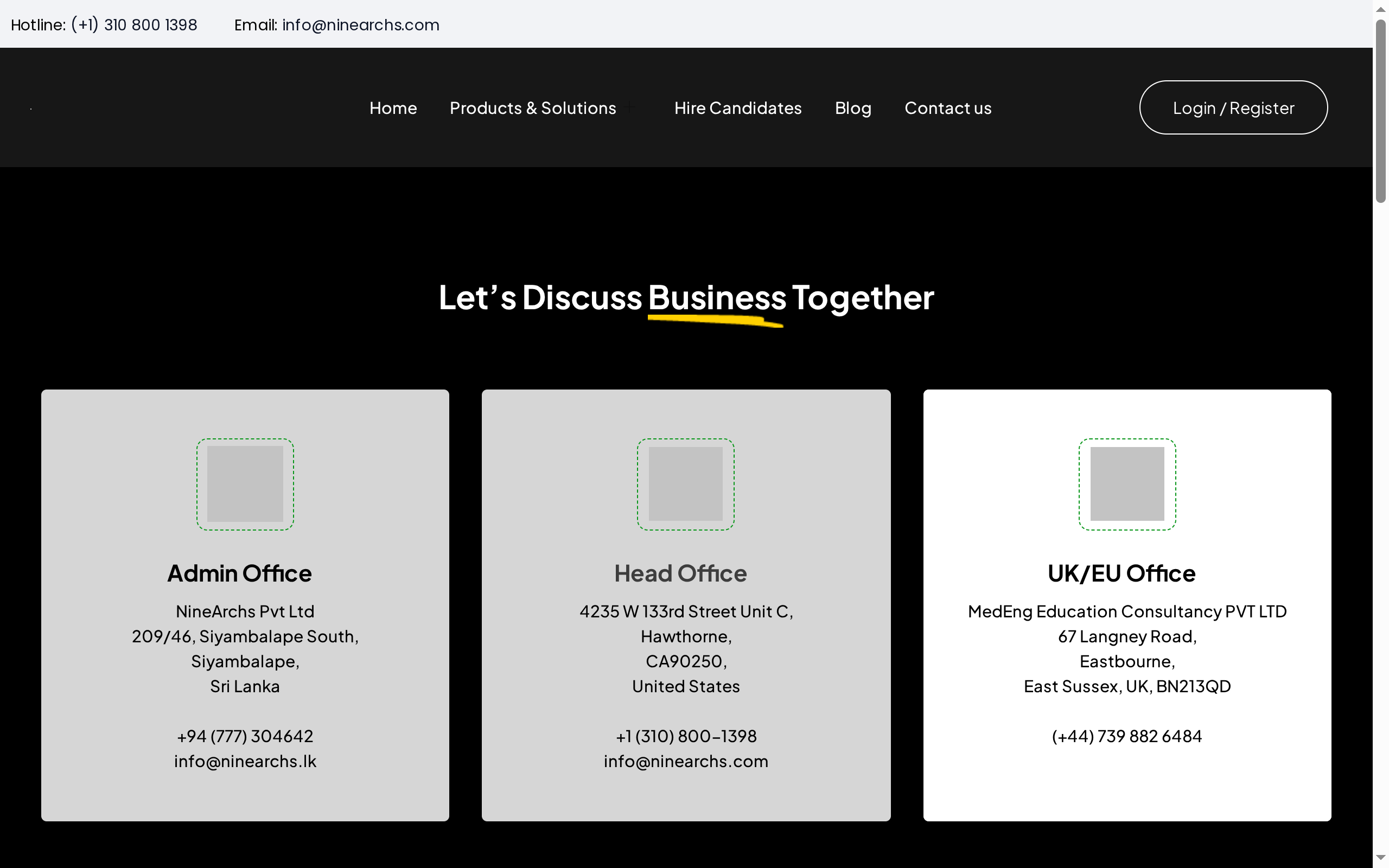Outsourcing data entry is reshaping how companies handle information, with over 80 percent of businesses now turning to external providers for data processing tasks. Managing vast amounts of data can quickly drain internal resources, leaving teams with less time for vital business goals. Outsourced data entry offers a practical solution by giving businesses access to skilled professionals who handle these time-consuming tasks quickly and accurately, allowing organizations to stay focused on growth and innovation.
What Is Outsourced Data Entry?
Outsourced data entry is a strategic business practice where companies delegate their data management and recording tasks to external specialized service providers. Data entry outsourcing involves transferring specific information processing responsibilities to professional teams who can handle large volumes of data efficiently and accurately.
At its core, this approach allows businesses to leverage external expertise for critical but time-consuming administrative functions. Companies typically outsource data entry tasks such as:
- Customer information processing
- Invoice and receipt digitization
- Inventory management records
- Survey and research data compilation
- Database updating and maintenance
The fundamental goal of outsourced data entry is to streamline operational workflows while reducing internal administrative overhead. By partnering with specialized service providers on administrative support, organizations can redirect their internal resources toward more strategic business objectives that drive growth and innovation.
In practice, outsourced data entry encompasses a wide range of digital and physical document processing activities. Professional data entry teams utilize advanced technologies and robust quality control processes to transform unstructured information into clean, organized digital records. This enables businesses to maintain accurate databases, improve information accessibility, and support more informed decision-making across multiple departments and operational domains.
Types Of Data Entry Outsourcing Services
Data entry outsourcing services encompass a diverse range of specialized information processing solutions designed to meet different organizational needs. Based on the research from psscive, these services can be broadly categorized into two primary types: online and offline data entry, each serving unique business requirements and operational contexts.
Online Data Entry Services
Online data entry focuses on digital information management across various digital platforms. These services typically include:
- Website data compilation
- Online catalog updating
- Digital form processing
- Social media data tracking
- Web research and information extraction
- Digital content management
Offline Data Entry Services
Offline data entry involves processing physical documents and converting them into digital formats. Key services in this category include:
- Paper form digitization
- Handwritten document transcription
- Image and document scanning
- Physical record conversion
- Legacy document digitalization
- Printed material data extraction
By outsourcing repetitive tasks efficiently, businesses can transform complex data management challenges into streamlined, systematic processes. Professional data entry providers leverage advanced technologies and skilled personnel to ensure accuracy, confidentiality, and rapid turnaround times across both online and offline service domains.

The strategic selection of appropriate data entry outsourcing services depends on an organization’s specific operational needs, document types, and digital transformation objectives. Companies can customize their approach by combining online and offline services to create comprehensive data management solutions that enhance overall organizational efficiency and information accessibility.

How Outsourced Data Entry Works
Outsourced data entry operates through a systematic, multi-stage process designed to transform raw information into structured, actionable digital records. Data processing workflows typically involve several critical steps that ensure accuracy, efficiency, and comprehensive information management for businesses seeking external support.
Key Stages of the Data Entry Process
The outsourced data entry workflow generally encompasses these fundamental stages:
- Initial Consultation and Requirement Analysis
- Understanding client’s specific data management needs
- Defining project scope and complexity
- Establishing data security protocols
- Identifying required technology and resources
- Document Preparation and Preprocessing
- Scanning and digitizing physical documents
- Cleaning and standardizing digital files
- Organizing information for systematic processing
- Removing potential errors or inconsistencies
- Data Extraction and Input
- Manually or automated data transcription
- Cross-referencing information for accuracy
- Utilizing advanced optical character recognition (OCR) technologies
- Entering data into specified digital formats or databases
- Quality Control and Verification
- Multiple-stage accuracy checks
- Cross-validation of entered information
- Error detection and correction processes
- Compliance with client-specific standards
By understanding how to outsource back office functions effectively, organizations can optimize their data management strategies and ensure seamless information processing. Professional data entry providers leverage a combination of skilled human expertise and cutting-edge technological solutions to deliver precise, reliable results.
The collaborative nature of outsourced data entry means that businesses can customize their approach based on unique operational requirements. Whether dealing with complex multi-format documents or streamlined digital records, these specialized service providers offer flexible solutions that adapt to evolving business needs while maintaining the highest standards of data integrity and confidentiality.
Key Benefits For Growing Businesses
Outsourced data entry represents a transformative strategy for growing businesses seeking to optimize their operational efficiency and strategic resource allocation. By leveraging external data management expertise, organizations can unlock significant advantages that directly contribute to sustainable business growth and competitive advantage.
Cost Optimization and Financial Efficiency
Outsourcing data entry services provides businesses with substantial financial benefits:
- Reduced Operational Expenses
- Eliminate costs of full-time data entry staff
- Minimize infrastructure and technology investment
- Pay only for actual services rendered
- Convert fixed costs into variable expenses
- Capital Reallocation
- Redirect saved resources toward core business activities
- Invest in strategic growth initiatives
- Fund research and development
- Enhance marketing and expansion efforts
Operational Performance Enhancement
Beyond financial advantages, outsourced data entry delivers critical operational improvements:
- Accelerated processing speeds
- Improved data accuracy
- 24/7 operational capabilities
- Scalable workforce flexibility
- Advanced technological integration
- Reduced human error probability
By exploring outsourcing solutions for business growth, organizations can transform their data management from a potential bottleneck into a strategic competitive advantage. Professional data entry services offer specialized expertise that enables businesses to maintain high-quality information processing without substantial internal infrastructure investments.
The strategic implementation of outsourced data entry allows growing businesses to focus on their core competencies while ensuring robust, accurate, and efficient data management. This approach not only optimizes operational workflows but also provides the agility needed to adapt quickly in rapidly evolving business landscapes, ultimately supporting sustainable growth and innovation.
Risks, Costs, And How To Avoid Pitfalls
Data entry outsourcing presents both significant opportunities and potential challenges for businesses seeking to optimize their information management strategies. Understanding and proactively addressing these risks is crucial for ensuring a successful and secure outsourcing experience that protects your organization’s most valuable asset: its data.
Primary Risk Categories in Data Entry Outsourcing
Businesses must be aware of several critical risk dimensions when considering external data processing partnerships:
- Data Security Risks
- Potential unauthorized data access
- Risk of confidential information breaches
- Vulnerabilities in digital transmission channels
- Inadequate cybersecurity infrastructure
- Quality and Accuracy Concerns
- Inconsistent data processing standards
- Higher error rates in complex documentation
- Limited quality control mechanisms
- Cultural and language interpretation challenges
Cost Considerations and Financial Risks
Outsourcing data entry involves nuanced financial implications that extend beyond immediate service fees:
- Hidden implementation expenses
- Potential productivity disruption during transition
- Technology integration costs
- Ongoing training and communication overhead
Comprehensive Mitigation Strategies
To effectively manage these potential risks, organizations should implement robust protective measures:
- Conduct exhaustive vendor background investigations
- Establish detailed service level agreements (SLAs)
- Implement multi-layered data encryption protocols
- Create comprehensive confidentiality contracts
- Develop strict access control mechanisms
- Maintain periodic performance audits
By understanding key benefits of business process outsourcing, companies can develop a strategic approach that minimizes potential vulnerabilities while maximizing the advantages of external data management services.
Successful data entry outsourcing requires a proactive, holistic approach that balances technological sophistication with rigorous vendor selection and ongoing performance monitoring. Organizations that invest time in comprehensive risk assessment and implement strategic safeguards can transform potential challenges into opportunities for enhanced operational efficiency and data management excellence.
Streamline Your Data Entry with Trusted Outsourcing Solutions
If managing large volumes of data is overwhelming your team and slowing down growth, it is time to consider a reliable partner who understands the challenges of outsourced data entry. From ensuring data accuracy and security to handling both online and offline tasks efficiently, the key concerns highlighted in the guide are exactly where expert assistance delivers the greatest impact. Businesses aiming to reduce operational costs while improving speed and scalability will find immense value in specialized support tailored to their unique needs.
NineArchs LLC offers comprehensive business process outsourcing services designed to eliminate common pain points such as data errors, security risks, and resource strain. Our skilled remote workforce and advanced technology integration provide precise data management, faster turnaround times, and peace of mind. Grow your company confidently by letting professionals handle your critical but time-intensive data processes.

Ready to transform your data entry operations and unlock new efficiency gains? Connect with us today at NineArchs contact to explore customized outsourcing solutions built to support your growth and safeguard your information. Don’t let data entry challenges hold your business back — take the next step toward streamlined workflows and smarter resource allocation now.
Frequently Asked Questions
What is outsourced data entry?
Outsourced data entry is a practice where companies delegate their data management tasks to external specialized service providers, allowing them to leverage external expertise for efficient and accurate processing of large volumes of data.
What types of data entry outsourcing services are available?
Data entry outsourcing services can be categorized into online services, such as website data compilation and digital form processing, and offline services, including paper form digitization and document scanning.
How does the outsourced data entry process work?
The outsourced data entry process typically involves stages such as initial consultation, document preparation, data extraction, and quality control to ensure accurate and thorough information management.
What are the benefits of outsourcing data entry for businesses?
Outsourcing data entry offers numerous benefits, including cost optimization, improved operational efficiency, enhanced data accuracy, and the ability to focus internal resources on core business activities.
Recommended
- Outsource Repetitive Tasks Guide for Seamless Efficiency | NineArchs
- 7 Top Support Tasks to Outsource for Greater Efficiency | NineArchs
- How to Outsource Back Office for Business Efficiency | NineArchs
- How to Monitor Outsourced Staff for Maximum Efficiency | NineArchs
- AI Invoice Parse – Complete Guide to Reducing Data Entry Errors








